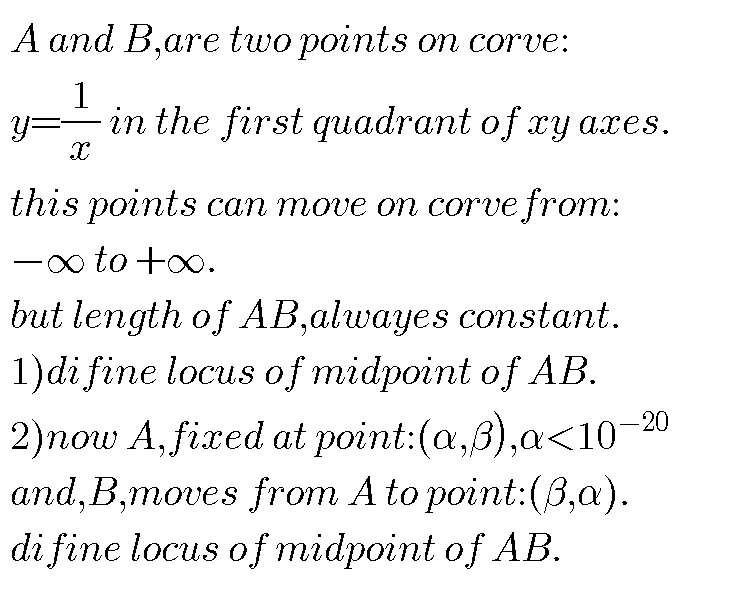
AllQuestion and Answers: Page 1700
Question Number 39055 Answers: 1 Comments: 0

Question Number 39040 Answers: 0 Comments: 0
Question Number 39039 Answers: 0 Comments: 2
Question Number 39038 Answers: 0 Comments: 2
Question Number 39037 Answers: 0 Comments: 2
Question Number 39035 Answers: 0 Comments: 1
Question Number 39034 Answers: 0 Comments: 1
Question Number 39033 Answers: 0 Comments: 2
Question Number 39032 Answers: 1 Comments: 0
$${x}+{y}=\mathrm{3} \\ $$$${x}=\mathrm{2} \\ $$$${y}=? \\ $$
Question Number 39028 Answers: 1 Comments: 0
Question Number 39026 Answers: 2 Comments: 0
Question Number 39025 Answers: 0 Comments: 1
Question Number 39024 Answers: 0 Comments: 2
Question Number 39023 Answers: 0 Comments: 1
Question Number 39022 Answers: 0 Comments: 1
Question Number 39021 Answers: 0 Comments: 0
Question Number 39020 Answers: 1 Comments: 0
Question Number 39019 Answers: 1 Comments: 3
Question Number 39018 Answers: 0 Comments: 0
Question Number 39017 Answers: 0 Comments: 1
Question Number 39016 Answers: 0 Comments: 0
Question Number 39015 Answers: 0 Comments: 2
Question Number 39013 Answers: 0 Comments: 1
Question Number 39053 Answers: 1 Comments: 0

Question Number 39003 Answers: 2 Comments: 0

Question Number 38982 Answers: 0 Comments: 9

Pg 1695 Pg 1696 Pg 1697 Pg 1698 Pg 1699 Pg 1700 Pg 1701 Pg 1702 Pg 1703 Pg 1704
